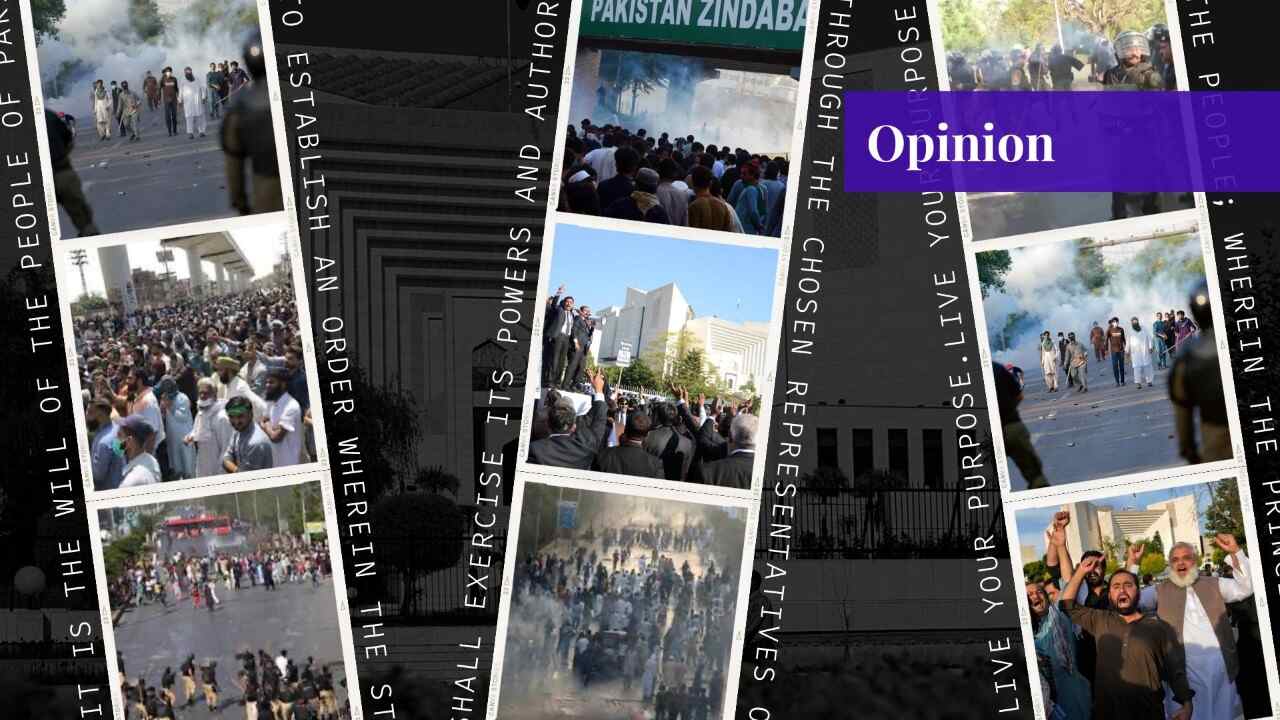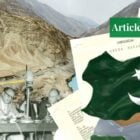In the prehistoric epoch, the only thing which was listened to was brute force. If you wanted anything, you had to win it by force; be it women, land, or animals. Barbarism, lawlessness, and savagery were the only things that prevailed. There was no concept of rights or rule of law or equality. There was no system of accountability. The bedrock of patriarchy was formulated around the notions of might is right, the foundations of which are still unshakeable.
However, with time, the strength of the pen and the wisdom of intellect emerged as a force to be reckoned with. Great minds like Socrates, Plato, and Aristotle came up with groundbreaking theories of political and legal philosophy. The works of such great minds, and the ones who succeeded them, led to the formation of the world order as we presently perceive, but were they able to eradicate the shallow thinking of the power-hungry?
Were they able to instill the virtues of the sanctity of the rule of law, equality, and justice in the mighty, let alone the sanctity of the place which upholds these values?
The courts were established for a structured administration of justice in a fair, impartial, and just manner. Though inanimate, they are the protectors of the unprotected, defenders of the defenseless, and keepers of the meek. The primary job of the courts is to interpret the laws; however, they comprise the exclusive organ of the state which is built on the edifice of justice. The judicial precinct as well as the judges who sit therein are to be respected by virtue of the values they stand for.
Contrary to expectations, justice is not always greeted with reverence. In 1985, a Guerilla Group, known as M-19, stormed into Columbia’s Palace of Justice in Bogota with guns blazing and held hundreds of civilians and a little over a dozen Supreme Court Justices hostage. The siege which continued for two days ended with the carnage of nearly one hundred civilians and eleven Supreme Court Justices of Columbia.
This barbarism was committed by a non-state entity that cannot be expected to respect the place of justice or its dispensers. But, what about those instances where the very enforcers of law violate the sanctity of courts? The halls of justice in Pakistan are well acquainted with the reality of being belittled and dishonored by potentates who have held or hold high offices.
The brute force which was once associated with barbarism is now being used by parties that are supposed to be safeguarding the interests of the state, to violate the sacredness of a place that upholds noble notions, such as the rule of law and justice. Can something which is violated itself, be able to protect others?
In the November of 1997, an unruly mob stormed into the courtroom of the then-Chief Justice of the Supreme Court of Pakistan, in an attempt to coerce him to adjourn the contempt of court proceedings against then-Prime Minister, Nawaz Sharif. The Chief Justice, reportedly, floundered from his courtroom to seek protection whilst the man in power, remained in power, notwithstanding the transgression of the sanctity of the highest court of the land.
Two and a half decades later, the fate of the courts of justice in Pakistan remains unchanged, or perhaps worse. Dozens of heavily armed paramilitary personnel raged through the corridors of the Islamabad High Court, shattering the windows of the judicial precinct with thunderous force to arrest Imran Khan. Khan was dragged by, what seemed like, a legion of heavily armored paramilitary warriors, to a getaway car, in a calculated abduction style, from the premises of the second highest court of the country.
The news channels limned the obliviousness cum helplessness of the chief custodian of the court through his words: “What is happening?” The Chief Justice demanded the Inspector General of Police to present himself before the Chief’s court within 15 minutes with an explanation, but who was the Chief kidding? Why weren’t the parties that are working from the shadows summoned? Why aren’t charges of terrorism being leveled upon the ones who mutilated the premises of the High Court?
Hypocrisy often lurks in the shadows, as it has been revealed by the silence of the despots. The judiciary cannot interfere with the workings of the legislature and executives when it comes to timely elections as per the Constitution, but some parties can defy the sanctity of the courts by storming through its doors and windows?
The brute force which was once associated with barbarism is now being used by parties that are supposed to be safeguarding the interests of the state, to violate the sacredness of a place that upholds noble notions, such as the rule of law and justice. Can something which is violated itself, be able to protect others?
Although the Supreme Court has ruled the manner of arrest of Imran Khan as unlawful whilst realizing the dent to its dignity, it hasn’t yet held the executants of this operation accountable. Does this mean that the doers can do whatever they please without being held in check?
If only the legality was to be determined without the imposition of a sanction on the doers, the parties involved will pull out one illegal rabbit after another from their nefarious hats unencumbered by any fear of consequences. Does the law not recognize the concept of retribution or reparation if the malefactor is powerful? Where does this leave the courts as the bastions of the rule of law?
If you want to submit your articles, research papers, and book reviews, please check the Submissions page.
The views and opinions expressed in this article/paper are the author’s own and do not necessarily reflect the editorial position of Paradigm Shift.



















